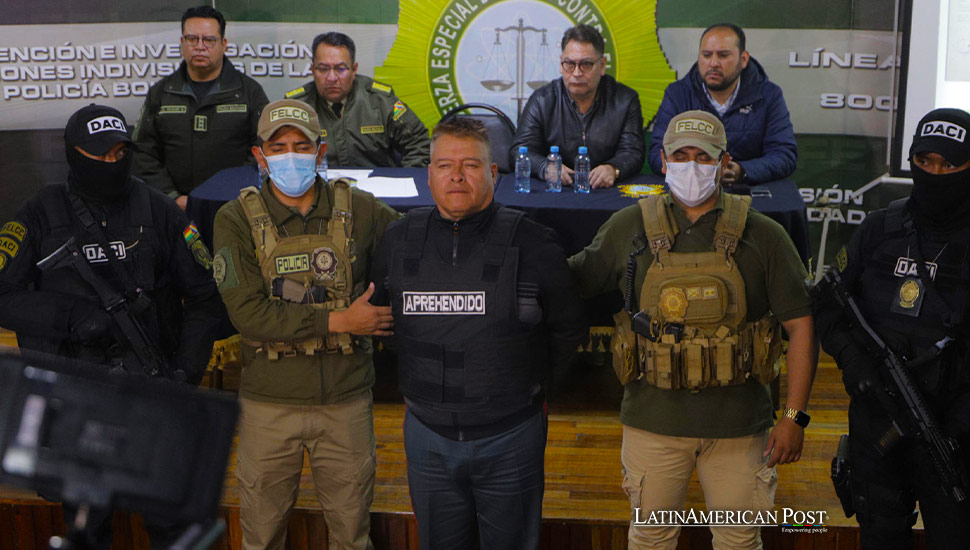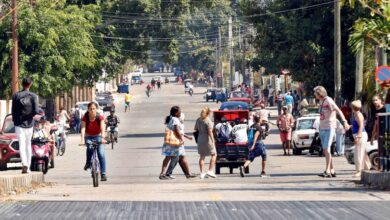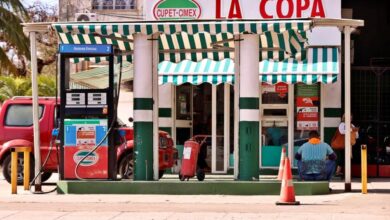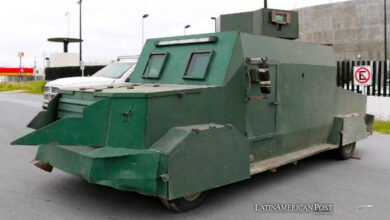Political Crisis in Bolivia as Army Attempts Coup Amid Public Unrest

President Luis Arce of Bolivia faced a dramatic coup attempt as armed forces stormed the presidential palace in La Paz. Arce called for international support and public mobilization to defend democracy against the rebellion
On a tense Wednesday evening in La Paz, Bolivia, the armed forces withdrew from the presidential palace following an attempted coup orchestrated by General Juan José Zúñiga. The dramatic events unfolded after President Luis Arce condemned the insurrection and appealed for international and domestic support to uphold democracy. Reuters reported on the crisis, capturing the intensity and uncertainty that gripped the Bolivian capital.
Earlier in the day, military units led by General Zúñiga, recently relieved of his command, gathered in Plaza Murillo, the heart of Bolivia’s political power. An armored vehicle rammed the door of the presidential palace, allowing soldiers to rush in, as observed by a Reuters witness. “Today, the country is facing an attempted coup d’état,” President Arce declared from within the besieged palace, urging the Bolivian people to organize and mobilize against the coup.
A few hours later, soldiers withdrew, and police regained control of the plaza. Zúñiga was arrested, although his destination was not immediately apparent. Inside the presidential palace, Arce swore in José Wilson Sánchez as the new military commander, replacing Zúñiga. “I order all personnel mobilized on the streets to return to their units,” Sánchez commanded, emphasizing the need to avoid bloodshed.
Rising Tensions Ahead of Elections
The coup attempt is set against a backdrop of escalating tensions in Bolivia as the nation prepares for general elections in 2025. Former President Evo Morales plans to run against Arce despite their shared roots in the ruling socialist party. This rivalry has created a significant rift and broader political instability within the party.
Many Bolivians are wary of Morales’ return. He governed from 2006 until his ousting in 2019 amid widespread protests and allegations of vote-rigging. An interim conservative government replaced Morales, and Arce was elected in 2020. General Zúñiga recently voiced opposition to Morales’ potential return and threatened to block him, prompting Arce to remove him from his post.
Zúñiga’s rebellion was fueled by growing discontent in Bolivia, which has been grappling with an economic slump, depleted central bank reserves, and pressure on the boliviano currency as gas exports dwindled. “The three chiefs of the armed forces have come to express our dismay,” Zúñiga told reporters before the coup attempt, calling for a new cabinet of ministers and decrying the current government’s actions.
Broad Condemnation and Calls for Support
The attempted coup has drawn widespread condemnation from regional leaders and international bodies. Morales, head of the ruling MAS socialist party, urged his supporters to mobilize to defend democracy. “We will not allow the armed forces to violate democracy and intimidate people,” Morales stated. The Bolivian public prosecutor’s office announced a criminal investigation against Zúñiga and others involved in the coup attempt.
Support for Arce and Bolivia’s democracy came from various quarters. Mexican President Andrés Manuel López Obrador strongly condemned the coup attempt and supported President Arce. Even political opponents of the government, including ex-President Jeanine Áñez, who was imprisoned in 2022 amid political turmoil, condemned the military’s actions. “We Bolivians will defend democracy,” Áñez wrote, emphasizing that the MAS party must be ousted through democratic elections in 2025.
Historical and Political Context
Bolivia has a tumultuous history of political unrest and coups. In 2019, Morales was ousted after an election fraught with allegations of fraud. Morales, Bolivia’s first indigenous president, implemented radical reforms to address social inequalities but faced significant opposition and controversy over his attempts to extend his presidency beyond constitutional limits.
After Morales resigned and was replaced by Áñez, Arce’s election in 2020 marked a return to power for the MAS party. However, the political landscape remains deeply divided, with Arce and Morales now at odds despite their shared political roots. The current crisis highlights the fragility of Bolivia’s democracy and the ongoing struggle for political stability.
As armored vehicles withdrew from the plaza and police set up blockades outside the government palace, the atmosphere remained charged. Regional leaders, including the Organization of American States and the president of neighboring Chile, Gabriel Boric, called for respect for democracy and the rule of law. The United States and the European Union condemned the attempted coup and urged restraint.
Bolivia, a nation of 12 million, has experienced intensifying protests over economic hardships and political uncertainty. The rivalry between Arce and Morales exacerbates the situation, adding to the country’s challenges. Local media reported Bolivians stocking up on essentials, fearing further unrest.
Amid these tensions, Vice President David Choquehuanca vowed that Bolivians would never again permit coup attempts. This sentiment echoes the resilience of the Bolivian people, who have faced numerous political upheavals and continue to strive for a stable and democratic future.
International Reactions and Future Implications
The attempted coup in Bolivia has sparked international concern and highlighted the delicate balance of power within the country. The swift condemnation from regional leaders and international bodies underscores the importance of maintaining democratic norms and stability in Latin America.
The situation in Bolivia also reflects broader regional trends, where economic difficulties and political divisions have led to unrest in several countries. The interplay between domestic politics and international relations is crucial in navigating these challenges. Strengthening democratic institutions and promoting inclusive governance are essential for ensuring long-term stability and development.
As Bolivia moves toward the 2025 elections, the political landscape remains to be determined. The rivalry between Arce and Morales will likely shape the country’s future, with potential implications for regional stability. A fair and transparent electoral process will restore confidence in Bolivia’s democracy.
Also read: Bolivia Reaffirms Limits on Presidential Terms Amid Morales’ Ambitions
The recent coup attempt in Bolivia highlights the country’s ongoing struggle for political stability and democratic governance. President Arce and his supporters’ swift and coordinated response demonstrates the resilience of Bolivia’s democratic institutions. However, the underlying economic and political challenges persist, requiring sustained efforts to address them. The international community’s support and vigilance will ensure that Bolivia navigates this turbulent period and emerges stronger and more unified.





